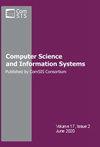Evaluation of smart city construction and optimization of city brand model under neural networks
IF 1.2
4区 计算机科学
Q4 COMPUTER SCIENCE, INFORMATION SYSTEMS
引用次数: 1
Abstract
The study aims to avoid the phenomenon that thousand cities seem the same in the construction of smart cities and the efforts of all walks of life are jointed to implement the construction of smart cities and the creation of city brands. First, the basic theory of smart city construction is introduced. Second, the restricting and promoting factors influencing smart city construction and development are analyzes, and the evaluation system of smart city development is established. Then, the model for smart city construction and development based on the neural network is implemented. Finally, some domestic cities are selected as the dataset to build a training model, and the city brand optimization strategy is proposed. On this basis, an evaluation system for smart city development based on the intelligent neural network and Grey relational analysis Back Propagation Neural Network (GRA-BPNN) is obtained. The entropy weight method (EWM), grey relational analysis (GRA) method and the evaluation method based on Technique for Order Preference by Similarity to an Ideal Solutionv (TOPSIS) are regarded as the members of the control group, and the results of different methods for evaluating the development of smart cities are compared. The results show that the modeling of smart city construction based on neural networks can help to implement an evaluation model for smart city construction and development, and it can help evaluate smart city construction and development accurately. And then the corresponding strategies are proposed to speed up the construction of smart cities with its local characteristics, and then city brands are built. Compared with other evaluation algorithms, the performance of the algorithm proposed is better and more stable and the evaluation results are more reasonable than those of the others, which can prove that the evaluation algorithm is feasible and scientific. This study provides a new idea for the application of deep learning to smart city construction and city brand building基于神经网络的智慧城市建设评价及城市品牌模型优化
本研究旨在避免千座城市在智慧城市建设中出现千篇一律的现象,将社会各界的努力联合起来,共同实施智慧城市建设和城市品牌的创建。首先,介绍了智慧城市建设的基本理论。其次,分析了影响智慧城市建设与发展的制约因素和促进因素,建立了智慧城市发展的评价体系。在此基础上,实现了基于神经网络的智慧城市建设与发展模型。最后,选取国内部分城市作为数据集,构建训练模型,并提出城市品牌优化策略。在此基础上,建立了基于智能神经网络和灰色关联分析反向传播神经网络(GRA-BPNN)的智慧城市发展评价体系。以熵权法(EWM)、灰色关联分析法(GRA)和基于TOPSIS (Order Preference Technique of Similarity to an Ideal solution)的评价方法作为对照组,比较了不同方法对智慧城市发展的评价结果。结果表明,基于神经网络的智慧城市建设建模有助于实现智慧城市建设与发展的评价模型,有助于准确评价智慧城市的建设与发展。进而提出相应的策略,加快建设具有地方特色的智慧城市,进而打造城市品牌。与其他评价算法相比,所提出的算法性能更好、更稳定,评价结果也比其他评价算法更合理,证明了评价算法的可行性和科学性。本研究为深度学习在智慧城市建设和城市品牌建设中的应用提供了新的思路
本文章由计算机程序翻译,如有差异,请以英文原文为准。
求助全文
约1分钟内获得全文
求助全文
来源期刊

Computer Science and Information Systems
COMPUTER SCIENCE, INFORMATION SYSTEMS-COMPUTER SCIENCE, SOFTWARE ENGINEERING
CiteScore
2.30
自引率
21.40%
发文量
76
审稿时长
7.5 months
期刊介绍:
About the journal
Home page
Contact information
Aims and scope
Indexing information
Editorial policies
ComSIS consortium
Journal boards
Managing board
For authors
Information for contributors
Paper submission
Article submission through OJS
Copyright transfer form
Download section
For readers
Forthcoming articles
Current issue
Archive
Subscription
For reviewers
View and review submissions
News
Journal''s Facebook page
Call for special issue
New issue notification
Aims and scope
Computer Science and Information Systems (ComSIS) is an international refereed journal, published in Serbia. The objective of ComSIS is to communicate important research and development results in the areas of computer science, software engineering, and information systems.
 求助内容:
求助内容: 应助结果提醒方式:
应助结果提醒方式:


